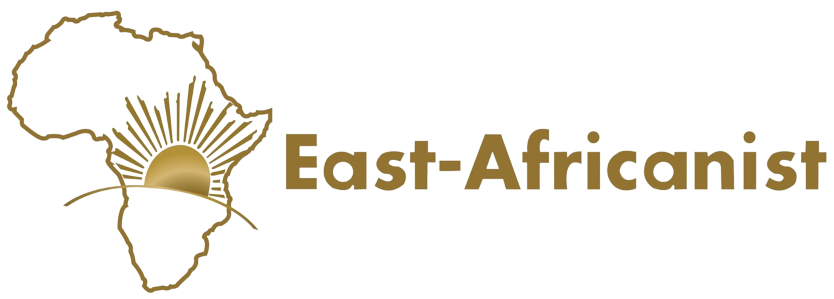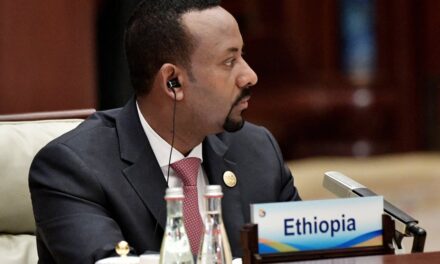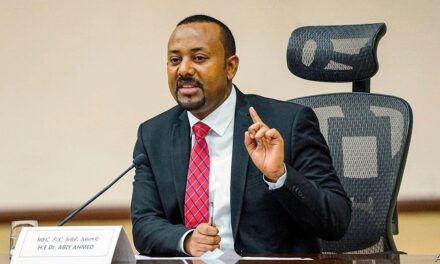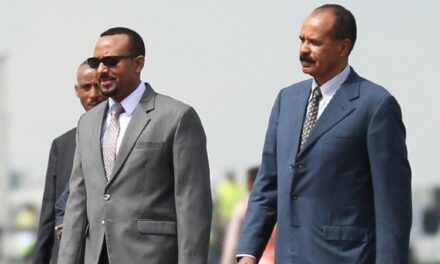By: F. Belay (Ph.D.) for @EAfricanist
The Grand Ethiopian Renaissance Dam (GERD) is a hydroelectric power dam under construction in Ethiopia. It is the largest dam in Africa and the seventh largest in the world upon completion. Although, the sole purpose of GERD is to alleviate Ethiopia’s acute electric power shortage, the dam offers a multitude benefits to millions of Ethiopians and the lower riparian countries such as Sudan and Egypt.
The GERD is a pillar project with huge potential for regional integration and it will jumpstart East Africa’s precarious economy. GERD has also generated political and diplomatic controversies among Ethiopia, Sudan & Egypt. Ethiopia believes that GERD is an existential necessity to lift millions of people out of dire situations without impacting the lower riparian countries. On the other hand, Sudan and Egypt argue that GERD will impact their ‘historical’ right to the Nile water.
Abay in Ethiopia: – Nile Outside
Abay as it is called in Ethiopia, contributes 86% of Nile water and has been a source of life for millions of people from time immemorial. More than 500 million inhabitants are dependent on this majestic transboundary river across 11 African countries.
It’s only fair that riparian countries utilize this mighty water resource equitably and in a responsible manner. In this regard, Ethiopia is constructing GERD to uplift millions of people out of extreme poverty and boost their socioeconomic status.
GERD is not just a simple developmental project as some may allude to. Rather, it is a non-consumptive, eco-friendly and existential necessities for millions of Ethiopians.
GERD is A Non-Consumptive Project
Sudan and Egypt have been expressing their concern that GERD would minimize their annual water supply. However, the reality is that GERD is a non-consumptive project with the sole purpose of heating turbines to generate electric power. Subsequently, the water continues its natural course and flow downstream to Sudan and Egypt. Unlike their mega irrigation projects, GERD is a non-consumptive project that does not create water shortage to downstream countries.
It’s so ironic that the Egyptian government continuously asserts that GERD would create water shortage while they are redirecting the Nile River out of its natural course (against the international transboundary water regulations) and commodifying it to the Middle Eastern countries under Toshka Project.
GERD is an Eco-friendly Project
GERD is an ecofriendly project that produces clean energy with zero carbon emission. It plays significant role in rehabilitating the environment while reducing greenhouse gas significantly. In addition to its multitude environmental benefits, GERD preserves water as it is located in a temperate zone. This in turn becomes the saving grace for Sudan and Egypt to mitigate their dry seasons.
It should also be noted that GERD is in a stark opposition to the Egyptian Aswan High Dam (AHD) that was constructed against scientific recommendations at the time. In fact, many designated AHD as ‘a wrong dam in a wrong place’. This is mainly due to the fact that every year, AHD loses 10-15 Billion Cubic Meter (BCM) water with evaporation.
Thus, it is critical that both Egypt and Sudan ought to comprehend the long-term benefits of GERD and work in collaboration for regional stability. Egypt and Sudan should also be wise and join Ethiopia in its green legacy initiative and afforestation process for sustainable water resources. A green, balanced and stable environment in Ethiopia brings abundant rain which benefits both Egypt and Sudan.
GERD is an Existential Necessity for Millions of Ethiopians
As mentioned earlier, GERD is not a simple developmental project, rather it is an existential necessity for millions of Ethiopians. Lack of access to electric power affect the people of Ethiopia in many ways. Particularly women and girls are the most impacted demographic groups due to their role in the society. In order to address these challenges, the completion GERD is critical.
GERD will provide electricity for 65 million Ethiopians. It also provides access to clean water and jump start the local economy. In addition, it will drastically improve the health of women while reducing the death of mothers from firewood smoke induced lung cancer. Thus, GERD is an existential necessity for millions of Ethiopians.
Point of Contention
Relying on the colonial treaties of the 19th century, which Ethiopia is not a part, Egypt and Sudan have been opposing the construction of the GERD under the premises that the GERD will ‘threaten’ their ‘historical’ right and water supply. These colonial treaties unfairly allocated 100% of the Nile water to Egypt (85%), Sudan (15%) and nothing for Ethiopia who contributes 86% of the Nile water.
It should also be noted that for years Egypt has manipulated financial institutions from providing loans to Ethiopia for any project on Abay water. Similarly, the World Bank and International Monitory Fund denied Ethiopia from accessing financial loans for the construction of the GERD. In effect, this mega dam is exclusively financed by Ethiopians alone. Today, Ethiopians view GERD as their second Adwa in which their sweat, tears, and blood signatures are imprinted.
Do Egyptian the politician/leaders think that they are non-Africans?
Being an African on Africa’s soil, for far too long Egypt has been deceiving herself as an Arab/Middle eastern nation. Imagining as if she is better than the rest of fellow African countries and African people in general. Critical analysis of this negative self-projection, denial, and lack of self-respect can easily reveal the identity crisis Egypt’s government is grappling with. I am not insinuating that the wider public fully subscribes to this notion. Though, it does not protect them from becoming the victims of this delusional discourse as well.
Two reasons can be identified to explain how Egypt’s leaders are making sense of themselves and the world: mental colonization induced identity crisis and hate of their Blackness /African-ness.
Mental Colonization Induced Identity Crisis
Identity crisis is one of the major manifestations of mental colonization. The oppressed usually develops prescribed and negative self-image of him/herself. Dehumanized people usually struggle with nihilism and internalized negative self-images imposed by their oppressors.
Years of physical, emotional and psychosocial abuse, trauma and exploitation decapitates the identity formation of the oppressed and forced him/her to live in the cycle of violence. Thus, depriving and disrupting the oppressed positive identity formation. Ultimately, the oppressed is mentally trapped and internalized negative sense of self which results in identity crisis.
In effect, Egypt’s politicians and decision makers are grappling with inferiority complex and identity crisis. In turn, forcing them to seek validation from their colonial masters and white intuitions like the European Union (EU) to address African Union (AU) mandates.
Hate of Blackness and African-ness
For far too long Egypt considered itself an Arab-Nation. Although, the Arab Nations never considered Egypt as one of their own ironically.
A deeper analysis of Egyptians and Sudanese leaders acts reveals a deep-seated inferiority complex and identity crisis stemmed from vehement hate of Blackness and African-ness.
Sudan and Egypt’s failure to accept “African Solutions for African Problems” is a testimony of their negative perceptions’ of fellow African’s capability, intellect, and leadership skills in addressing internal affairs. Their internalized negative sense of themselves made them trust EU more than AU.
Egypt and Sudan’s Belligerent Act of Undermining AU
With ‘African Solutions to African Problems’ moto, the AU has been tasked to negotiate Ethiopia, Sudan and Egypt on issues related to GERD. Ethiopia being one of the founding fathers of the AU and a firm believer on the intuition’s capacity, has engaged in the process of negotiation in a faithful manner. However, Egypt and Sudan have been consistently undermining and sabotaging AU-led negotiation process.
Plotting multiple strategies, they have sabotaged AU’s initiatives from engaging in a constructive manner to address outstanding contentious points. In the last couple of years alone, Egypt and Sudan have managed to sabotage 9 AU-led negotiation meetings in a shameful and disrespectful manner. In their belligerent actions, both nations have repeatedly shown their contempt and disrespect for the AU and the African people it represents. Instead, they kept running to the Arab League, EU and United Nations Security Council (UNSC) for Africa’s problems.
A closer look at their actions highlights their hate of Blackness and African- ness.
Yes, hate of Blackness is what is driving them to seek validation from their colonial masters. You see, when the white European colonized Africa and other parts of the word, they did not only colonize and the land and exploited the resources, but also occupied and dehumanized the minds, spirits and souls of the colonized people. In it, they have erected massive inferior images of the oppressed him/herself to keep him/her under control. One must note that these distorted images of the self cannot be easily shaken off. In effect, mental enslavement remains the biggest challenge of the oppressed. As a result, the colonized always seek validation and assurance from the white masters, white institutions, and white organizations like the EU.
In a similar vein, the hate of Blackness/African-ness continuously push Sudanese and Egyptian leaders to seek support from their colonial masters at the EU and UNSC in GERD related matter. In the first place, it is these colonizers who created cancerous policies that have been major destabilizing factors in Africa for years.
One needs to also understand that the oppressed internalized negative self-image significantly hampers him/her to believe in him/herself or his/her fellow comrades to function at higher level. Within this framework, Sudanese and Egyptians leaders’ internalized negative perception of Blackness/Africans-ness pushed them not to trust the AU-led negotiation process to handle this matter. In several instances, Egypt and Sudan’s representatives reiterated that AU is incapable of handling GERD related issues. Therefore, they have been seeking intervention from EU, Arab League and UNSC.
Sudan and Egypt’s cynical attempts to pressurize Ethiopia using different tactics to relinquish its dream of completing the GERD is unacceptable. It is high time that Egypt and Sudan realize that Africans in the continent and the diaspora are cautiously monitoring their disrespect to AU-led negotiation processes. If they do not refrain from their belligerent acts, they will risk significant sociopolitical crisis and ultimately Africans may come to terms with the reality that they indeed stand against anti-development aspirations of the continent’s poor states. Both Sudan and Egypt should also understand that Africans have the knowledge, ability, wisdom and capabilities to address their internal challenges. As such Sudan and Egypt need to respect AU-led process to take its course of action and abide by the code of conducts.
Author’s email: [email protected]





